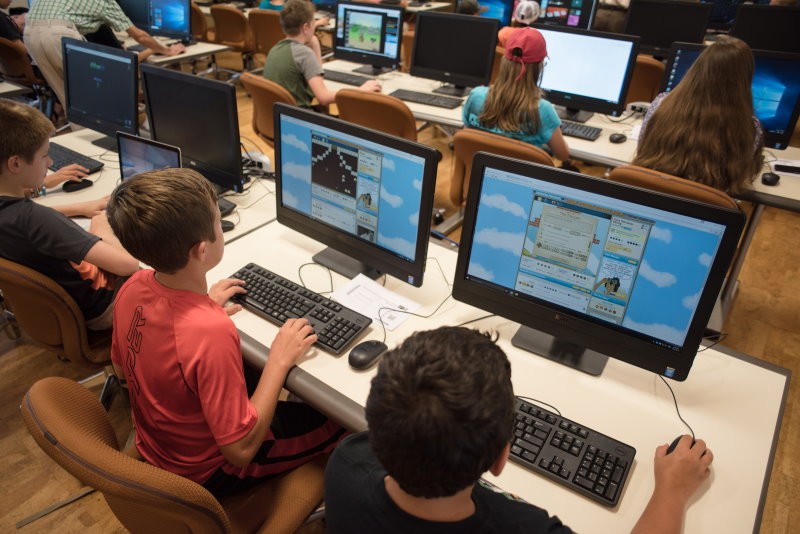A workshop held Monday on the University of North Georgia's (UNG) Dahlonega Campus helped young students envision one day making the very kinds of games they currently spend so much time enjoying.
The workshop was sponsored by the national Institute of Museum & Library Sciences and was led by game industry professionals from E-Line Media and the Joan Ganz Cooney Center at Sesame Workshop, also presenters of the National STEM Video Game Challenge. The workshop was co-facilitated by Mote Ed, LLC, a local company that provides support for innovational educational experiences. According to Chad Mote, founder of Mote Ed, this collaboration produced the first-ever National STEM Video Game Challenge workshop to be held in Georgia.
According to a press statement from UNG, the students learned more than just how to code a game; they also learned mechanics behind game design that make the end product an enjoyable pastime rather than a chore. To demonstrate this, workshop leader Mark German of E-Line Media asked student groups to make a change to the classic game of Rock, Paper, Scissors and then present it to their peers.
Several groups chose to add new elements, creating new monikers for the game such as "Rock, Paper, Scissors, Glue." Others chose to change the rules by doing things such as reversing the strengths of each element, which made rock weak against scissors instead of vice versa. Perhaps the most interesting suggestion was a way to play a true three-person game, which involved the three players standing in a triangle and using both hands to cast, instead of just one. The result was each player's right hand was competing against the person on the right, and the left hand against the person on the left.
German used these examples to show the students how simple adjustments in the foundation of a game that everyone is familiar with can greatly change the rules of the game and how players approach it. Throughout the two-and-a-half-hour workshop, students learned many similar principles and even began coding their own games, with the goal being to have their games ready for submission to the National STEM Video Game Challenge by Aug. 15.
"Students, particularly middle school students, spend a great deal of time on personal devices and social media, and we want to provide them with a more productive outlet — in this case, the National STEM Video Game Challenge. Having learned the basics from the workshop, students can now go online and work on these games while building math and science skills, helping academic learning transcend the school walls into their home and social networks," said Dr. Joshua Cuevas, an assistant professor of education at UNG who helped organize the workshop.









